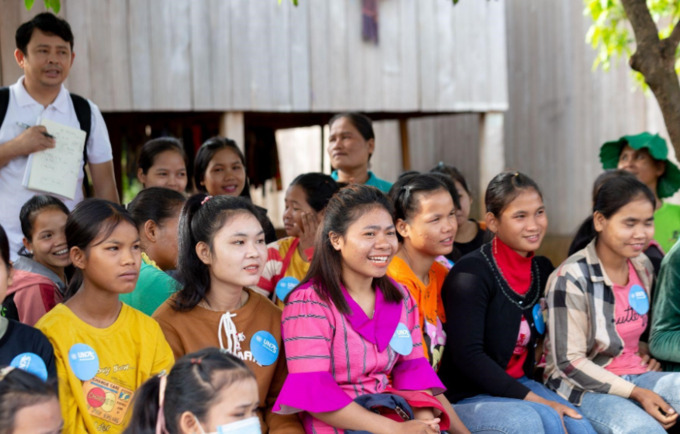UNFPA Cambodia
UNFPA Cambodia: Safeguarding Women and Young Girls in Cambodia against Gender-Based Violence(GBV)
Background
Project Aim: This project aims to prevent imminent GBV incidences including sexual harassment, among the vulnerable young women and girls (aged 15-24), particularly the female factory workers, and provide support for survivors. The relevant Sustainable Development Goals (SDGs) are Goal 3 on health and well-being for all and Goal 5 on Gender Equality in Addition to Goal 17 on partnership.
Target Population: Young people, particularly female factory workers and university students in Phnom Penh City
Target Area: Phnom Penh City
Period: April 2022~March 2025 (3 years) *Needs assessment starts from February 2022.
In Cambodia, over 30 percent of women have ever experienced physical, sexual, or emotional intimate partner violence in their lifetime, and about 49 percent of these GBV survivors and victims reported that they never talked about it to anyone. Particularly, female factory workers and young people are the most vulnerable population that is facing violence including harassment. According to the Cambodia Youth and Adolescent Report in 2020, 29 percent of young people aged 15 to 24 reported having witnessed physical violence in their community in the past 12 months, and 12 percent reported having experienced some forms of abuse.
In addition, the escalation of violence against women and children during the COVID-19 pandemic is another urgent concern. Survivors are now more seeking help, the number of calls to violence hotlines has increased 7 times higher in March 2021 when the national lockdown started compared to before November 2020, people are actively searching the information for GBV survivors through the internet, and the number of searches increased by 52 percent compared to last year before the COVID-19 community outbreak in Cambodia. On the other hand, not all GBV survivors are able to access the services they need. In Cambodia, a number of laws, policies, and strategies have been introduced and various GBV response services have been established. However, only 24 percent of women who have experienced physical or sexual intimate partner violence seek help from formal service providers. User friendly system for survivors and victims is required to help them to find information and use the helpline services.
The proliferation and innovative use of digital technology give young people, women, and girls more opportunities than ever before. In Cambodia, approximately 60 percent of young people aged 15-24 have access to mobile phones and regular access to the internet in urban areas. Most young people reported it is also used to stay connected with friends and relatives through social media and messaging apps 90 percent. For vulnerable women and girls including GBV victims, it is proven that a simple ICT tool can play a key role as a safeguard such as a solution to prevent violence or harassment, or used as a safety alert system to protect victims from the perpetrator. However, unequal access to technology in the context of gender, geography, and socio-economic conditions deters them from leveraging the technology solutions. There is a gender digital divide, particularly among Cambodian factory workers that compromises education opportunities, access to the latest COVID-19 information, and access to business support measures.
Wesley Zaidan support the project through the partnership with UNFPA. UNFPA and the Ministry of Women Affairs (MoWA) work together on the project to prevent imminent GBV incidents including sexual harassment, among the vulnerable young women and girls (aged 15-24) and provide support for survivors. The project aims to develop a mobile safe app system that educates vulnerable women and girls about GBV, including sexual harassment, and serves as a safety network (shield) to protect them from violence and prevent sexual violence and harassment before it occurs.
In addition, we will work on enhancing the coordination, referral mechanism, and service network to link the victims with relevant and appropriate services.
Photo credit: United Nations Resident Coordinator Office Cambodia

